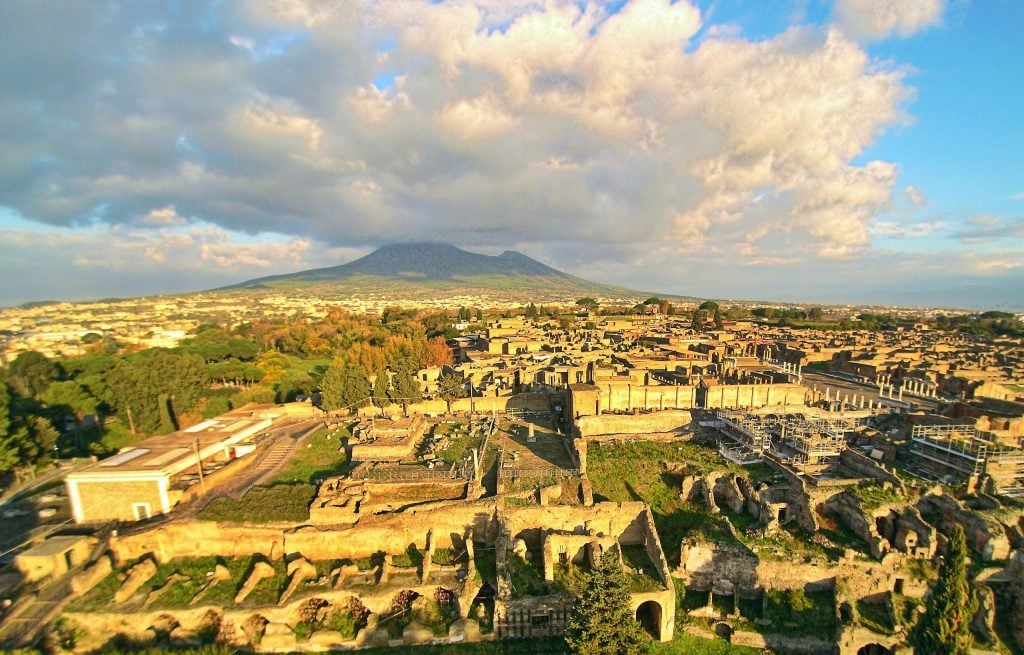Art World
Can Italy Save Pompeii? Emergency Funding for Damaged Archaeological Site May Not Be Enough


Sarah Cascone

The deteriorating condition of Pompeii, one of the world’s greatest archaeological treasures, has brought widespread criticism upon the heads of the Italian government. Italy, say the critics, has not sufficiently protected the site. But perhaps things are finally looking up for the crumbling city.
As reported by the BBC, Italy’s culture minister, Dario Franceschini, announced at an emergency meeting on Tuesday, March 4, that the government was releasing €2 million ($2.8 million) in emergency funds to repair and preserve the site. The ancient city may have been a (reasonably intact) ruin for almost 2,000 years, but with heavy rainstorms in recent days, it has been falling to pieces at a rapid rate.
The meeting followed in the wake of the collapse of an archway in the Temple of Venus and a tomb wall elsewhere on the complex.
The city was included as an endangered site on the World Monuments Watch list as early as 1996, and the collapse of the Schola Armatorum, or House of the Gladiators, made headlines in 2010.
The latter incident eventually led, in April of 2012, to the announcement of the European Union–backed “Great Pompeii Project” with a €105 million budget. The EU pledged €41.8 million ($58 million); Italy put up the remaining €63.2 million ($87.7 million).
But only a fraction has been spent to date, with the funding set to expire at the end of 2015. Following the meeting on Tuesday, the Italian government has moved to free up €2 million ($2.8 million) for immediate use.
An article in the Art Newspaper indicates that the planned restoration may be foiled thanks to bureaucratic entanglements. In January, Massimo Osanna, an Italian archaeology professor, was nominated to manage the project. But a spending review by the Corte dei conti, a government agency that audits public expenditures, may deem Osanna’s appointment an unnecessary expense.